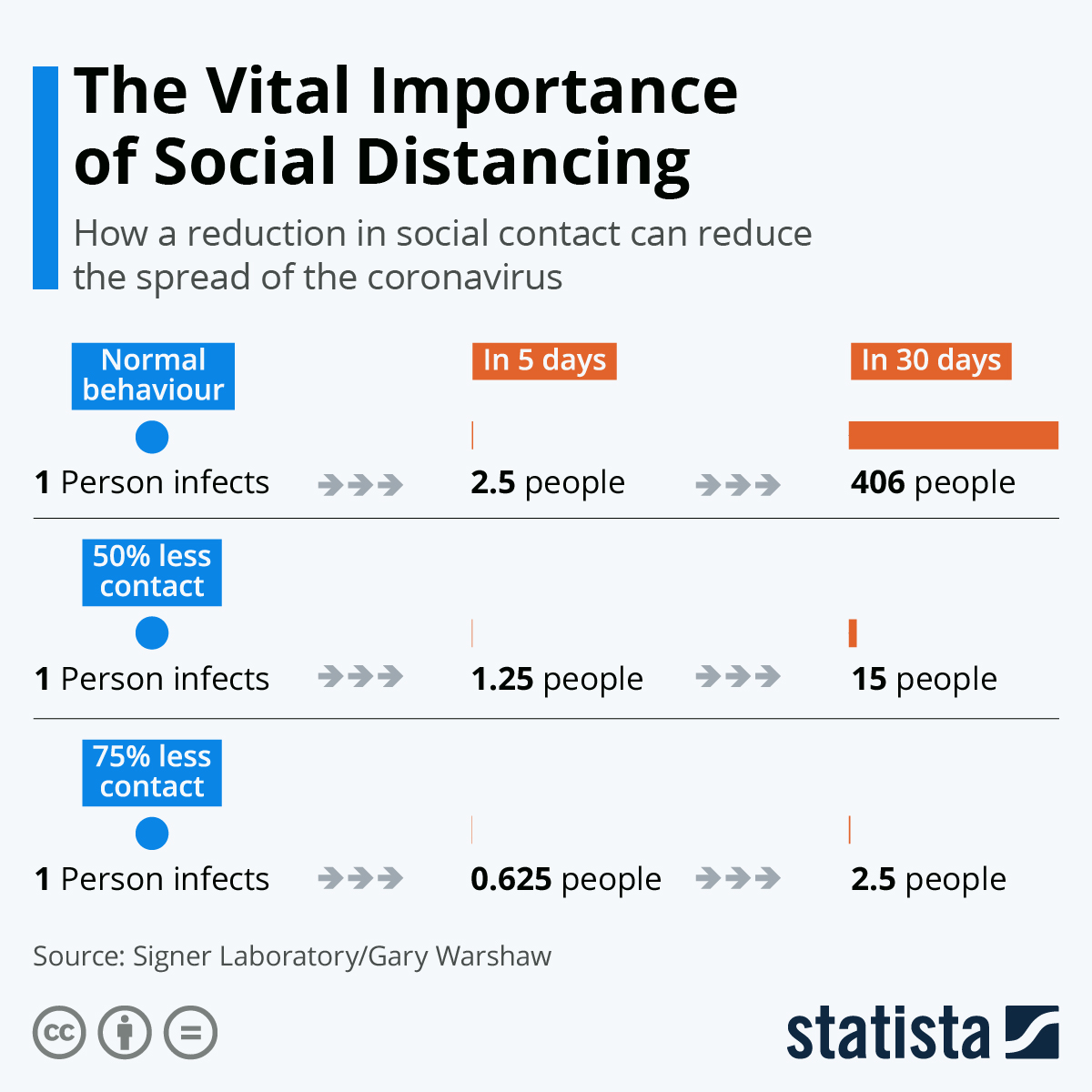COVID-19 And Social Distancing
In an attempt to combat the spread and slow down of COVID-19, everyone is taking part in a ‘trending’ movement known as ‘Social Distancing’.
It’s currently Easter weekend in the UK and for the first time in what feels like a millennia, the sun is beaming; instead of spending this time with our loved ones around the country, the vast majority of us have been confined to our homes. The reason for this is to hamstring an ‘invisible killer’ as best as we can, however the best we can do is not really good enough (more on this later).
The world is under attack and being pillaged by an invisible killer that does not discriminate against its prey. Regardless of your social standing, the amount of wealth you’ve amassed or who you may know, the effects of Corona Virus: Covid-19 have touched each and everyone of our lives. In an attempt to combat the spread and slow down it’s effects, the country and the rest of the world is taking part in a ‘trending’ movement known as ‘Social Distancing’.
What is Social Distancing?
It may seem obvious to some, more so than others, but all social distancing is, is the act of maintaining a fair distance between yourself and anyone else you may be around, whether it be at the shops, the petrol station or during exercise. A report published by Centers for Disease Control and Prevention (CDC) details exactly how best to practice social distancing, the basics are as follows:
- Stay at least 2 meters (6 feet) from other people.
- Do NOT gather in groups and if you are it should be with no more than one other person, outside your household.
- Stay away from crowded places
In addition, if Covid-19 is spreading in your area, it is important to limit the amount of contact with the people you have outside your household, whether it be indoor or outdoor. Social distancing is also very important to those who may be within higher-risk groups as infection could lead to an increased risk of mortality in this subgroup of patients.
Why is Social Distancing Important?
Viruses, unlike bacteria, need to inject a tiny piece of ‘code’ into a cell inside your body for them to spread, meaning they use your own cells to replicate and grow; they simply need a point of entry to exert their effects. Your immune system can often target these ‘damaged cells’ which are carrying the virus and cause them to undergo something called ‘apoptosis’ which is a type of programmed cell death, most of the time this is how we deal with the common cold or flu.
Recovering from Covid-19 works similarly, however the side-effects, the rate at which it spreads and the incubation period being anywhere from 2 to 14 days is what makes it a force to be reckoned with. What exactly is an ‘incubation period’? Why is it so important? Why is it so relevant to social distancing?
The incubation period of a virus is the period of time you can carry the virus without showing any symptoms. This means you have the ability to infect people unknowingly. Since the incubation period for Covid-19 can be up to two weeks the rate at which it spreads between people will likely be greater than that of the common cold, which can be anywhere between 1 to 3 days.
What social distancing facilitates is the reduction in overall risk of passing the virus, unknowingly, to another because you have yet to show signs of infection, after all- no virus has the ability to walk or move, the only way it can spread is through us. The more we limit our exposure to others, the less we go out unnecessarily and the longer we stay indoors, the more likely Covid-19 will die off and we can go back to doing nothing on our weekends off, of our own volition instead of being told what to do.

source: https://bit.ly/2VqGAac
Social distancing has been proven to reduce the overall spread of infection when it comes to pandemics or epidemics and has been modelled on several occasions in silico with promising result. With the amount of information available to us in our pockets, the luxuries a lot of us have at home there still seems to be groups or pockets of people who are choosing not to take part, and to those I really do urge you to reconsider your decision; it’s a small ask.
What Can I do to Socially Distance ‘Safely’?
There isn’t all that much to it, as long as there is a presence of space between individuals; you are avoiding all non-essential travel e.g going to the shops everyday to buy a single egg and you’re not sharing a toothbrush with strangers all should be well, here is a guide on the best steps to take whilst social distancing.
There has been much debate on how to exercise safely during ‘lockdown’. A study published by a group of Belgian physicists has shown the effects of how maintaining a 2 metre or 6 foot distance between someone whilst running/cycling/walking can still pose significant danger as droplets containing the virus will travel directly backwards due to the nature of the airflow. It is therefore best to avoid exercising directly behind a person to minimise your risk of infection.
Aside from all the obvious measures associated with social distancing, if you are forced to go out into the public or you are an essential worker hygiene is a key determining factor when it comes to reducing transmission of virus and limiting the viral load you are exposing others to. This means washing your hands as often as possible, using hand sanitizer with alcohol content >70%, wearing eye protection, wearing gloves and removing any item of clothing that you were wearing outdoors as soon as you get home.
There has also been talk surrounding the use of face masks to protect yourself and others and their efficacy. Whilst the World Health Organisation (WHO) has yet to issue a statement regarding their use, the CDC have chosen to recommend the use of face masks in public. To all those who remain sceptical, a conversation I had with a friend helped rationalise this for me, it went something along the lines of:
“If you were in Antarctica and you had two options, the first option being you remain completely naked with no clothes, shoes, underwear- absolutely nothing and the second option being offered a hoodie, some trousers, socks and trainers, which one would you choose?” Obviously the latter will still not provide the best of protection to handle the climate, but I still know what option I’d pick.
Let’s stand together by NOT standing together.
















